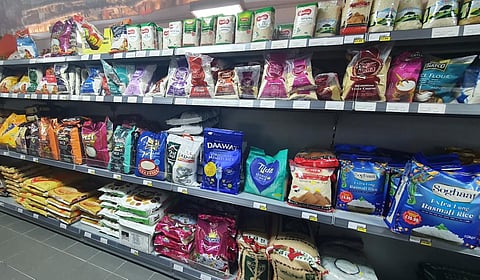

The Supreme Court on Friday issued notice and sought the Uttar Pradesh government's detailed reply in a batch of pleas challenging the UP state govt's ban on the manufacture, sale, storage and distribution of halal-certified products.
The Yogi Adityanath government had, in November, banned the sale of halal-certified products in the state. Halal certification indicates that the product has been manufactured or generated according to the dos and don'ts contained in Islamic religious texts.
The UP government banned halal certification in the state, claiming that since it was not mentioned in the Food Safety and Standards Act, selling items with such a certification was illegal.
“Halal certification of food products is a parallel system which creates confusion regarding the quality of food items and is completely against the basic intention of the said Act and is not tenable under Section 89 of the said Act,” the UP government order said.
It also said that the use of the mark constitutes a “pre-planned strategy to sow class hatred, create divisions in society, and weaken the country”.
This was challenged in the Supreme Court by some of the affected parties, including Jamiat Ulama-E Maharashtra and Halal India Private Ltd. They have argued that the identification and consumption of Halal products is a protected activity for Muslims and is part of their religious and personal laws under Article 26 and 29 of the Constitution of India.
The petitioner also sought a direction from the court to quash a first information report registered at Hazratganj police station in Central Lucknow, UP. The case was against “some companies [that] have started certifying products as halal in order to increase their sale" among Muslims. The case was filed under sections such as 120-B (Criminal Conspiracy), 420 (Cheating), 467 (Forgery of a valuable Security) and 468 (Committing Forgery) of the Indian Penal Code (IPC).
After hearing the petition, a two-judge bench of the Top Court, headed by Justice BR Gavai and also comprising Justice Sandeep Mehta, issued notice to UP govt and sought its response in the petitions.